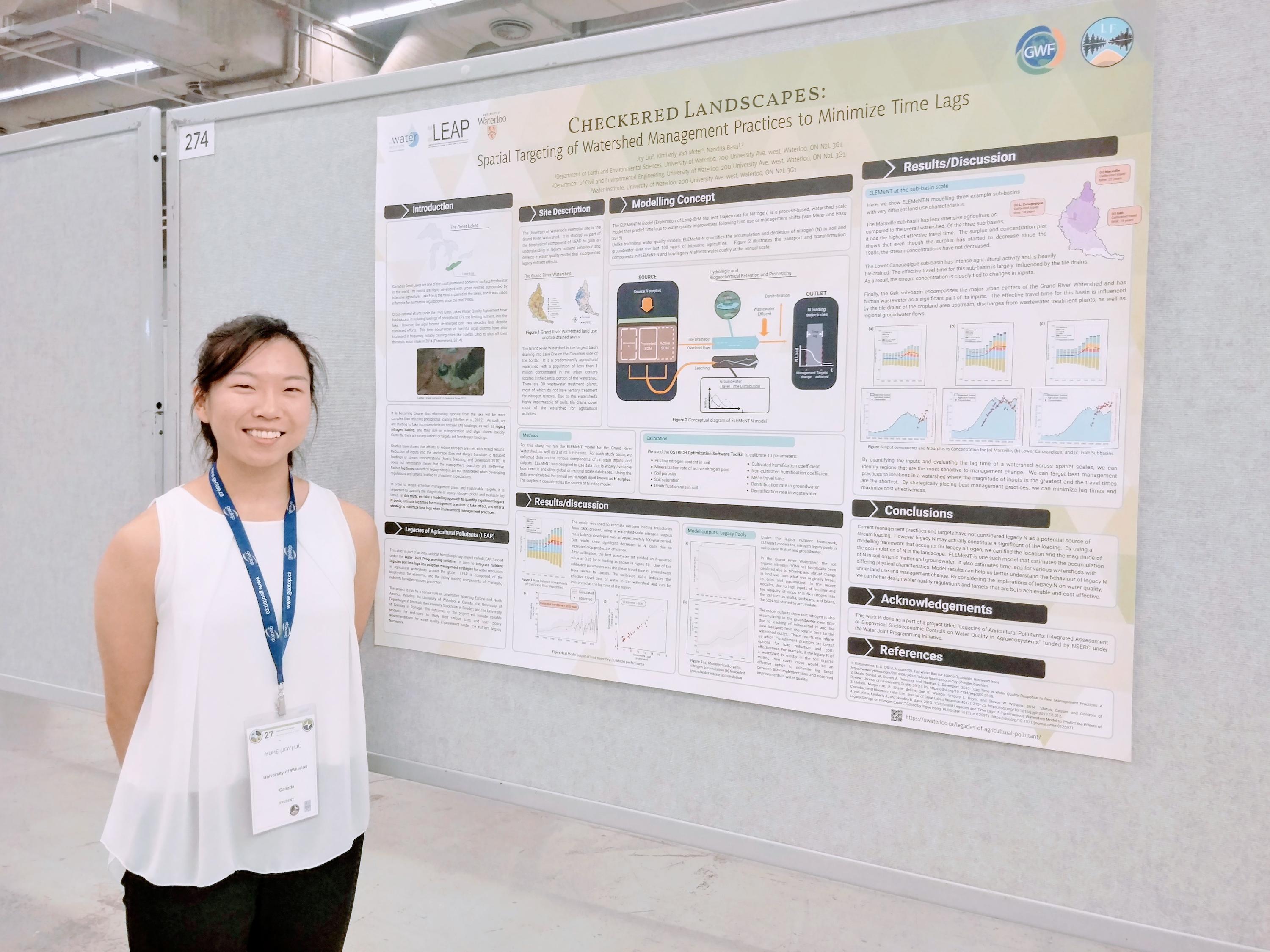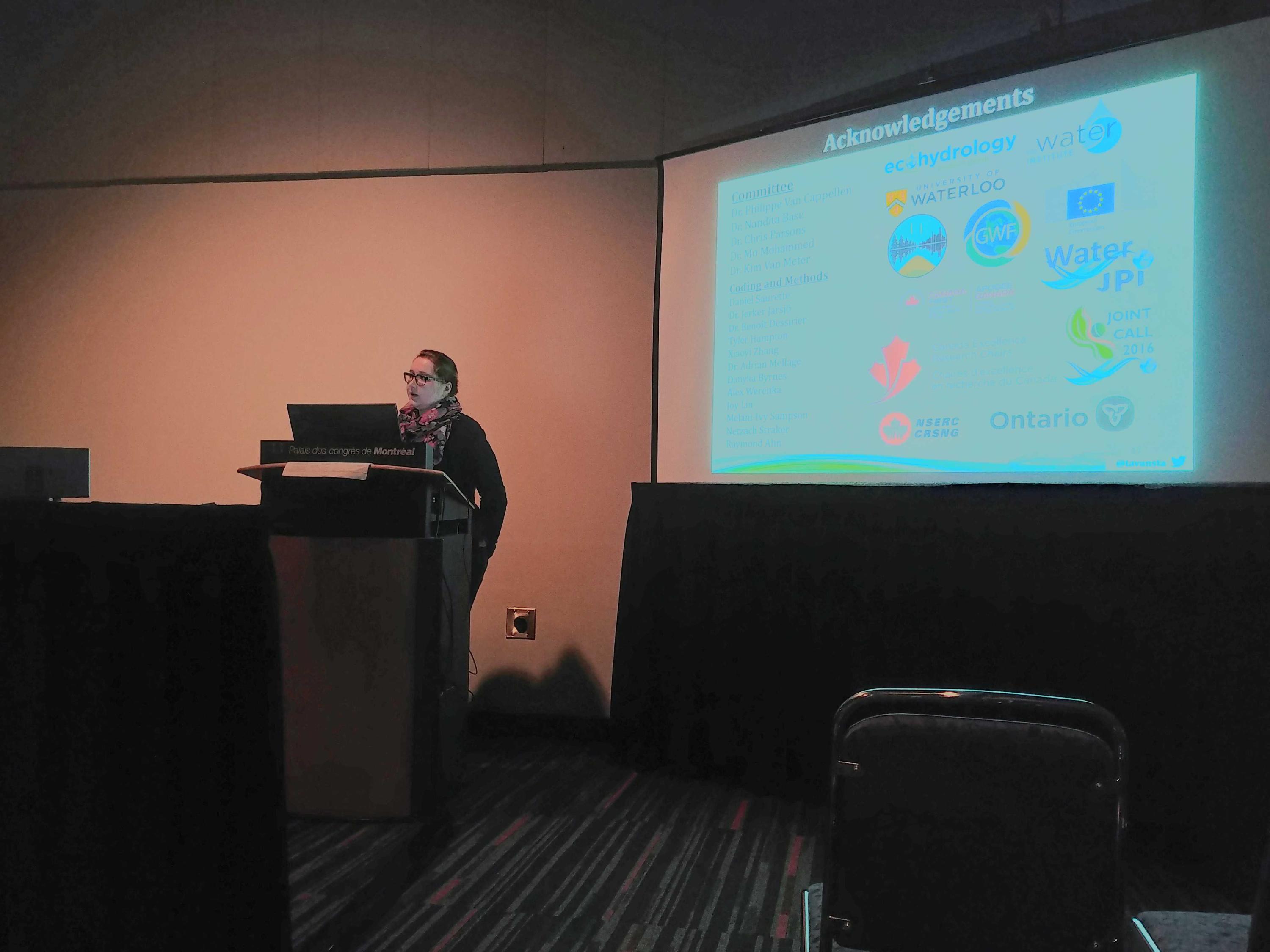A group of Lake Futures researchers travelled to Montreal, Quebec to take part in the joint meeting of the 27th Annual Assembly of the International Union of Geodesy and Geophysics (IUGG) and the Canadian Geophysical Union. This joint meeting provides a unique opportunity for attendees from Canada and around the world to share ideas. This year marks the 100th anniversary of IUGG.
On Friday July 12th Joy Liu and Tamara Van Staden, graduate students with Lake Futures, presented their work. Joy Liu presented a poster titled ‘Checkered Landscapes: Spatial Targeting of Watershed Management Practices to Minimize Time Lags’. Her work uses modelling approaches to explore nutrient time scales in streams, focusing on a predominantly agricultural and mixed-land use watershed.

Joy Liu presenting her poster titled 'Checkered Landscapes: Spatial Targeting of Watershed Management Practices to Minimize Time Lags' at the conference in Montreal.
Tamara Van Staden gave a talk titled ‘Phosphorus Legacies in Ontario Watersheds’ in the 'Long-Term Spatiotemporal Evolution of Catchment Water Quality and Sedimentation' session, with other presenters from around the globe. She uses a mass balance model to identify areas in Ontario with high phosphorus accumulation. Then, she overlays these maps with other landscape features to identify areas of Ontario that are at high risk for phosphorus leaching to surface water.

Tamara Van Staden giving a talk titled 'Phosphorus Legacies in Ontario Watersheds' at joint International Union of Geodesy and Geophysics and Canadian Geophysical Union conference.
Wrapping up the exciting week, Homa Kheyrollah Pour, Research Scientist with Lake Futures, chaired a session on ‘Climate Change Impacts on Arctic Snow, Permafrost, Lake and River Ice’ along with other colleagues on July 13th. In these three sessions, researchers from across Canada, Germany and Poland came together to discuss rapid change in the Arctic, and its impacts and feedbacks with other earth systems. Understanding how changes in ice are linked to other earth systems can help us understand future impacts of climate change on the Arctic.